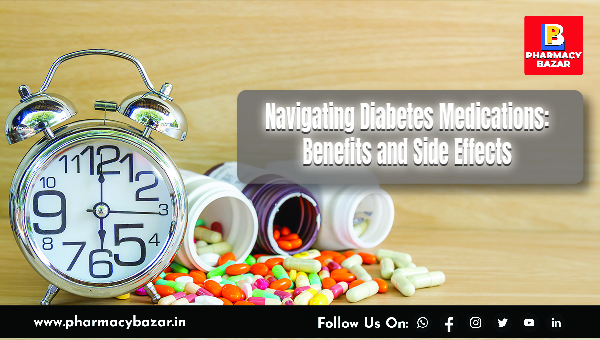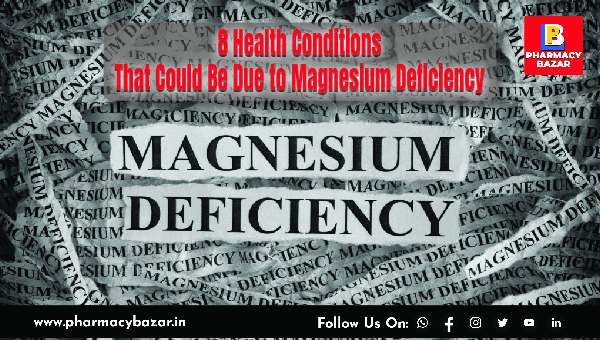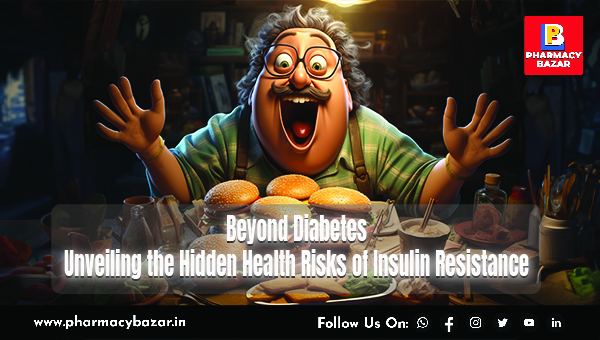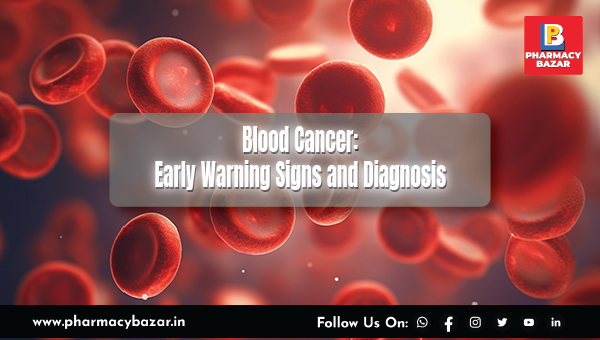Blood Cancer: Early Warning Signs and Diagnosis
Jul 28, 2024
Discover the early warning signs of blood cancer and the importance of early diagnosis. Learn about symptoms, types, and diagnostic methods to stay informed and proactive.
Introduction
Blood cancer, encompassing leukemia, lymphoma, and myeloma, is a complex disease that affects the blood, bone marrow, and lymphatic system. Despite advancements in medical science, the early detection of blood cancer remains crucial for effective treatment and improved survival rates. Understanding the early warning signs and diagnostic methods is essential for timely intervention. This article delves into the critical aspects of blood cancer, focusing on recognizing symptoms early and the steps involved in diagnosis.
Understanding Blood Cancer
Blood cancer disrupts the normal function of blood cells, impacting the body's ability to fight infections, produce new blood cells, and carry oxygen. The three main types of blood cancer are:
Leukemia: Affects the blood and bone marrow.
Lymphoma: Targets the lymphatic system.
Myeloma: Involves plasma cells in the bone marrow.
Each type presents distinct characteristics and requires specific diagnostic approaches.
Early Warning Signs of Blood Cancer
Unexplained Fatigue and Weakness
One of the earliest and most common symptoms of blood cancer is persistent fatigue and weakness. This fatigue is not alleviated by rest and can significantly impact daily activities.
Frequent Infections
Blood cancer can weaken the immune system, leading to recurrent infections. Frequent colds, fevers, and infections that take longer to resolve can be indicative of an underlying issue.
Unexplained Weight Loss
Rapid and unexplained weight loss is a red flag for many cancers, including blood cancer. This weight loss is often accompanied by loss of appetite and can be a significant warning sign.
Easy Bruising and Bleeding
Individuals with blood cancer may notice they bruise easily or experience prolonged bleeding from minor cuts. This occurs due to a decrease in healthy blood platelets, which are essential for clotting.
Swollen Lymph Nodes
Swelling in the lymph nodes, particularly in the neck, armpits, or groin, can be an early sign of lymphoma. These swollen nodes are often painless and may gradually increase in size.
Bone Pain and Joint Discomfort
Blood cancer can cause bone pain, particularly in the spine, ribs, and long bones. Joint discomfort and pain can also occur, impacting mobility and quality of life.
Night Sweats
Excessive sweating at night, often soaking through clothing and sheets, can be a symptom of blood cancer. These night sweats are not related to external temperature or physical activity.
Diagnostic Methods for Blood Cancer
Medical History and Physical Examination
A thorough medical history and physical examination are the first steps in diagnosing blood cancer. Doctors will look for signs such as swollen lymph nodes, unusual bruising, and other symptoms mentioned earlier.
Blood Tests
Complete Blood Count (CBC): Measures the levels of different blood cells and can indicate abnormalities.
Blood Smear: Examines the shape and appearance of blood cells under a microscope.
Bone Marrow Biopsy
A bone marrow biopsy involves extracting a small sample of bone marrow tissue to examine for cancerous cells. This test is crucial for diagnosing leukemia and myeloma.
Imaging Tests
CT Scans: Provide detailed images of internal organs and can detect lymph node enlargement.
MRI: Offers detailed images of bones and soft tissues.
PET Scans: Highlight areas of high metabolic activity, common in cancer cells.
Lymph Node Biopsy
In cases of suspected lymphoma, a lymph node biopsy may be performed. This involves removing a lymph node or part of it for microscopic examination.
The Importance of Early Diagnosis
Early diagnosis of blood cancer significantly improves treatment outcomes. When detected early, blood cancers are more likely to respond to treatment, and patients have a better chance of achieving remission. Regular health check-ups, awareness of symptoms, and prompt medical consultation can make a critical difference.
FAQs
What are the most common early signs of blood cancer?
Common early signs include unexplained fatigue, frequent infections, unexplained weight loss, easy bruising, swollen lymph nodes, bone pain, and night sweats.
How is blood cancer diagnosed?
Diagnosis typically involves a combination of medical history, physical examination, blood tests, bone marrow biopsy, and imaging tests.
Why is early diagnosis important for blood cancer?
Early diagnosis allows for more effective treatment, improves the chances of remission, and enhances overall survival rates.
What should I do if I experience symptoms of blood cancer?
If you experience any persistent symptoms, consult a healthcare professional promptly for a thorough evaluation and appropriate testing.
Can blood cancer be cured?
While some types of blood cancer can be cured, others can be managed effectively with treatment. Early diagnosis and intervention are key to achieving the best outcomes.
Are there risk factors for developing blood cancer?
Risk factors include age, genetic predisposition, exposure to certain chemicals, previous cancer treatment, and certain infections.
Conclusion
Recognizing the early warning signs of blood cancer and understanding the diagnostic process are vital for timely and effective treatment. Awareness and proactive healthcare can make a significant difference in the lives of those affected by blood cancer. By staying informed and vigilant, individuals can take crucial steps toward early detection and improved outcomes.
DISCLAIMER:
This article is the property of Pharmacy Bazar and is protected by copyright laws. The information provided in this article is for educational and informational purposes only and is not intended to be a substitute for professional medical advice, diagnosis, or treatment. Always seek the advice of a qualified healthcare provider with any questions you may have regarding a medical condition. Never disregard professional medical advice or delay in seeking it because of something you have read in this article. The author and publisher of this article do not endorse any specific treatments, procedures, or products mentioned in this article
Recent Post

Understanding Gallstones: Causes, Symptoms, and Treatment Options

Navigating Diabetes Medications: Benefits and Side Effects

Revolutionizing Cancer Treatment: How Unleashing T Cells' Energy Could Transform Immunotherapy

The Power of Lower Back Stretches: Benefits and Best Yoga Asanas for a Healthy Spine

8 Health Conditions That Could Be Due to Magnesium Deficiency

Unlocking Brain Health: How Lifestyle Choices Impact Cognitive Functions

When Speech Takes a Surprising Turn: Unraveling Foreign Accent Syndrome

The Optimal Time to Take Your Vitamin D Supplement: Insights and Best Practices

Beyond Diabetes: Unveiling the Hidden Health Risks of Insulin Resistance

India's Pharmaceutical Rise: From $65 Billion to $130 Billion by 2030 - A Journey of Growth and Opportunities

